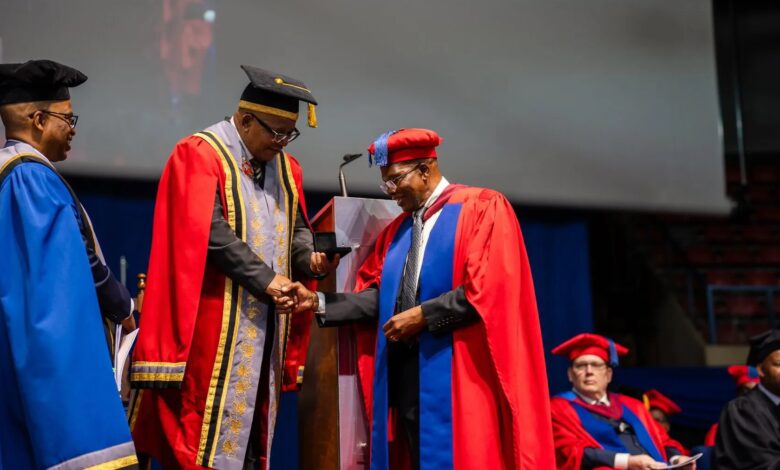Business Thought Leader Dr Reuel Khoza Receives UP Chancellor’s Medal

Business Thought Leader Dr Reuel Khoza Receives UP Chancellor’s Medal. “There should be an insistence on knowledgeability as a criterion for anybody in a leadership position… They cannot be motivated by self-enrichment or be morally degenerate.” These are the words of Dr Reuel Jethro Khoza, leadership pioneer and accomplished businessperson, academic and author, who was awarded the Chancellor’s Medal by the University of Pretoria (UP) during the autumn MBA graduation ceremony held by UP’s business school, the Gordon Institute of Business Science (GIBS), on 16 April.
Dr Khoza is currently Chairperson of investment holding company Dzana Investments and Discovery Bank, among others, and has previously served as a Director of JSE Limited. He is Emeritus Professor Extraordinaire of the University of Stellenbosch Business School and currently a Visiting Professor at Rhodes Business School, the University of the Free State Business School, and Wits Business School. He also holds three honorary doctorates.
Dr Khoza was born in Bushbuckridge in Mpumalanga in 1949. His father was an evangelist who set a high standard of academic achievement. During school holidays he looked after his grandfather’s cattle, which instilled a love of farming. Today his companies are among the largest exporters of avocados and macadamia nuts. Dr Khoza’s dismissal from academia led him to start his business career. After four years as a marketing assistant and product manager he was awarded a scholarship to do his master’s in marketing at the UK’s University of Lancaster.
In 1981 he established his own marketing and management consulting firm. Khoza said, “During apartheid you could not apply for offices in ‘white South Africa’, and I needed an office in downtown Johannesburg. I had to forego 51% of my company so that it came across as a white company.” At the sametime he joined and later became one of the directors of the Black Management Forum, which today promotes the creation of managerial structures and processes that reflect the demographics and values of South African society.




